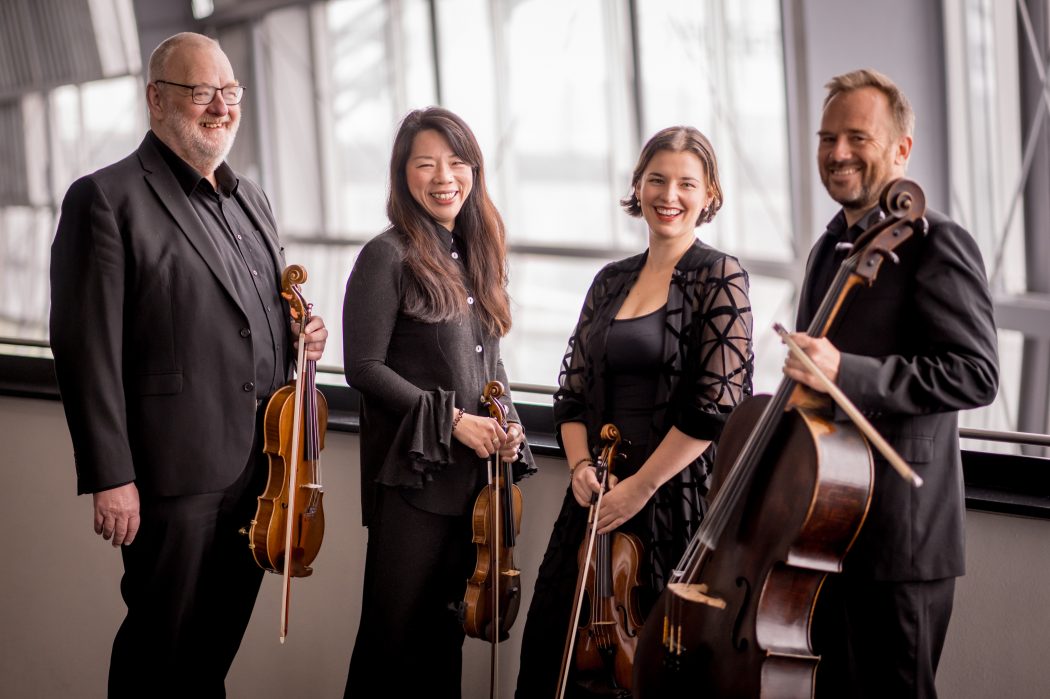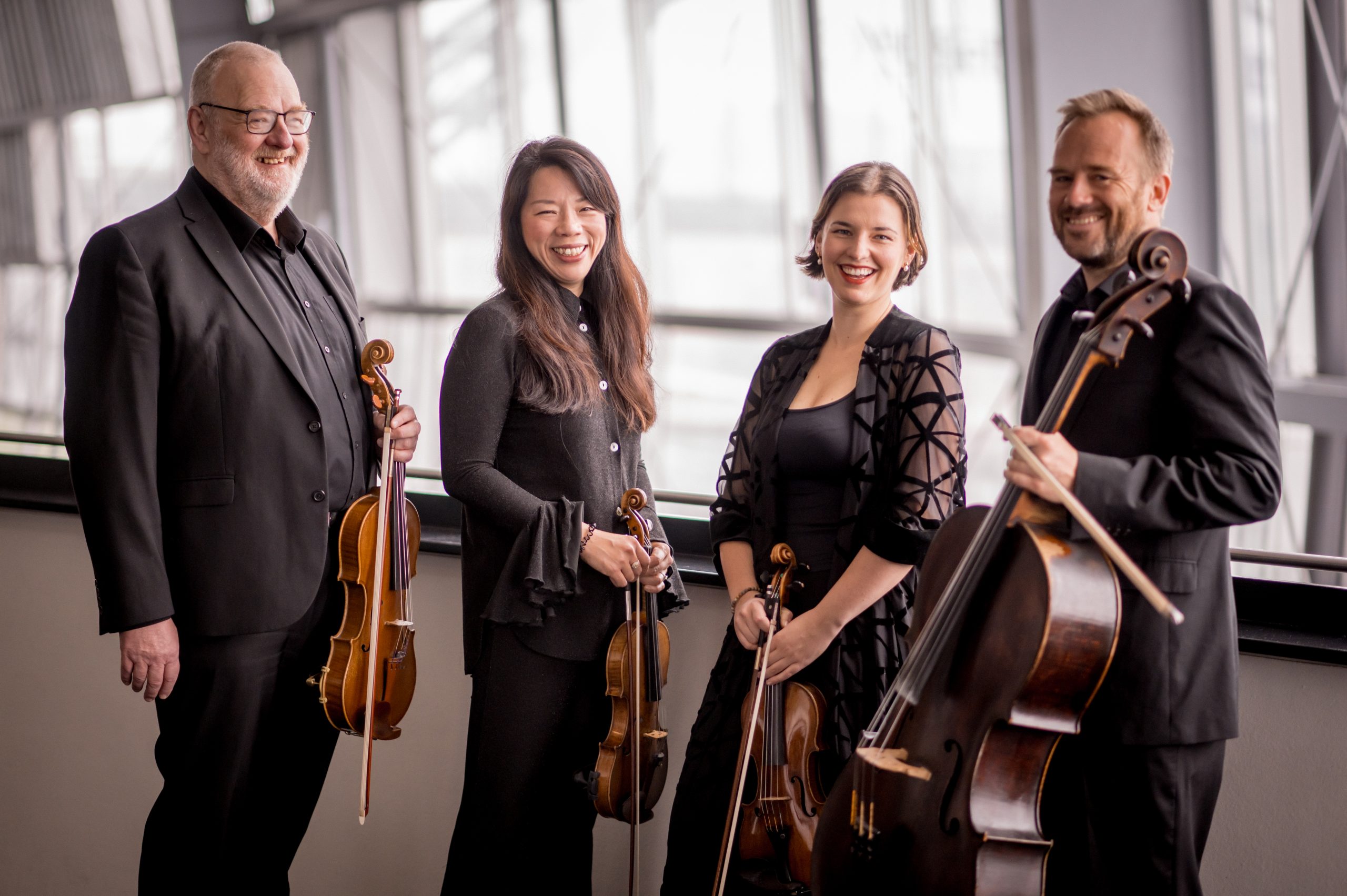The 2023-24 MUSICON concert series continued on Wednesday 1 November with a selection of chamber works performed by soloists from Royal Northern Sinfonia, the UK’s only full-time professional chamber orchestra. The concert took place at Elvet Methodist Church as part of their short tour of the North East. MUSICON director James Weeks’ description of the performers as “the jewel of our region” was shown true by their stunning depictions of youth and nature, where contemplative moments interspersed playful charm throughout the evening.
We began with Amy Beach’s Pastorale (1941) for Woodwind quintet, a work channelling her love for nature. The RNS wind players gently carried us from a contemplative start through a rich yet calm evocation. Lilting lines, conversations between instruments, and clean flourishes characterised the work, and the ensemble’s refined management of turns and moments of life allowed us to travel through its otherwise relatively static energy. Stephen Reay’s gentle bassoon entries were notable for their astute control and delicacy.
Grażyna Bacewicz’s Wind Quintet (1932) followed. One of few internationally recognised female Polish composers, Bacewicz composed this work whilst studying under Nadia Boulanger. Whether we consider her music “conservatively modern or radically classical,” the work’s youthful folk energy, whilst lively and playful, was handled with expert agility. The work began characterfully and lightly energetic, with flurries of motion and contrasting togetherness. The second movement began with an evocative French horn solo, taken up by the bassoon, before an effective interplay between the two, as stately as it was questioning. Controlled agility and a breathless, playful tone from all players flowed us forwards. Peter Francomb’s charisma on the French horn shone in the final movement, and a busy soundscape rounded off the work.
The last wind piece of the evening was doubtless what the ensemble was waiting for. Leoš Janáček’s Mládí (1924), or Youth, is a wistfully nostalgic but celebratory set based on childhood. Janáček was a Czech folklorist, and this piece uses the concept of speech melodies, the inclusion of Czech speech intonation in music. The phrase “golden youth” was emphasised by the players, first in the oboe, then flute, then scattered throughout. The lower parts rushed in next, and the addition of Jessica Lee’s bass clarinet immediately increased warmth and depth. A synergy of movement followed, with parts interchangeably scurrying before syncing back together. There was an unresolved continuity, brought to calm resolution by the bass clarinet.
The third movement, a Vivace, swapped flute for piccolo. This “March of the Bluebirds” looked back to the blue cassocks of Janáček’s time as a chorister. This was painted by the piccolo’s role, though unison moments reminded the audience of a resulting dawn chorus – blending as choristers might. Its ending was beautifully formed, quick and light before a moment of quiet. The final movement had a wash of connection through unapologetic entries, youthful in their assuredness. The rocking of accompanying instruments descended into fuller, broader motion, with the returned flute finally breaking over the top of the texture. A lone oboe leads into a slow singularity. The work finished with a rumble of energy, breaking before their final flourish.
After the interval, the string ensemble appeared for our main work, Felix Mendelssohn’s String Octet in Eb major (1825), composed when he was only sixteen. As described in the concert, Mendelssohn’s early string quartets “expressed Beethoven in his own voice,” and the octet is “arguably [Mendelssohn’s] most perfect expression of joy and freedom.” Youthful vigour bursts through every note of barely contained excitement; rather than programmatically youthful, Mendelssohn’s adolescence is apparent from his technique. First violinist and director Maria Włoszczowska had a contagious, unfaltering energy. Her visceral connection to the performance embodied youth, in all of its emotions. Eva Aronian, principal second violinist, was a strong, complementary presence by her side, with moments of beautiful interplay throughout.
The work began melodic yet energetic, with moments of clarity from the pizzicato cello. Each repetition built to a rich tremolo which soon dissipated, a wash rather than a bash of repeated motifs. Contrasting with the first violin’s virtuosity, the accompanying instruments’ unity contained stillness. A controlled quietness followed, a barely contained Andante, but only later did we hear the full ensemble’s chamber skill– whilst the first violin initially held a solo textural position, later movements joined all instruments in effective communication. The Scherzo’s playfulness was embodied across parts, a light staccato with unity and rhythmic precision. The second cellist Gabriel Waite rolled us without pause into the Presto with a breathless energy. The overall pace, however, was controlled, and the speed and concentration of all players towards the end created a spectacular finish to the programme. The opportunity to see and hear the Royal Northern Sinfonia in such an intimate setting was an incredibly vivid experience, and I eagerly await their return to Durham in the future!
Royal Northern Sinfonia
Wednesday 1st November 2023, Elvet Methodist Church
Zoe Solomon
Zoe Solomon is a final year undergraduate student at Durham University. muckrack.com/zoe-solomon









